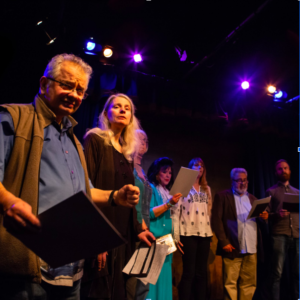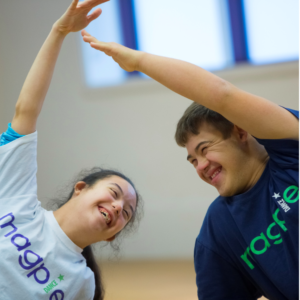Get to know: Melissa Wong, Impact Manager for the Cultural Impact Development Fund

How did you first get started in the arts?
I started out as a classical pianist, taking lessons and graded exams from the age of 5 and eventually earning a Grade 10 Certificate in Piano from the Royal Conservatory of Music in Canada (equivalent to the ABRSM Diploma). When I finished school, there was pressure from many directions to go into a profession with a stable career pathway, but I felt a calling to go into music, and through a combination of scholarships and many varied part-time jobs, I was able to support myself to study music at university. I’ve been a sound engineer, piano accompanist, data entry clerk, library cataloguer, finance assistant, call centre representative, maths tutor, lighting technician—you name it!
What was it like studying music at university?

There’s a common misconception that all music students are training to become performers. Although I did spend many hours practicing piano, I was more attracted to musicology. Much like art historians study art rather than making it themselves, musicologists study the historical development, cultural context, and structural elements of music. I started focusing in this discipline in undergrad and eventually went on to complete a PhD in musicology. My academic studies aren’t directly related to what I do now, but there is a similar element of looking for the deeper structural logic within an artistic endeavour, which appeals to my analytical mindset.
What do you mean about analysing artistic endeavours? How does that fit into your role at Nesta Arts & Culture Finance?
I’m the Impact Manager for the Cultural Impact Development Fund, which provides small-scale repayable finance for socially driven arts and cultural organisations. My role is to help our applicants and investees better understand, capture, and articulate the social impact of their work. In practice, this means that I spend a lot of time with arts organisations unravelling the underlying logic of their programmes and how they contribute to positive social change. I also support them to develop structured approaches to collecting evidence of their social impact and making use of this evidence within their organisations. So there are elements in my role of both directly analysing arts programmes and providing the tools for arts organisations to better analyse and interpret the impact of their programmes themselves.
Are you still active as a musician alongside your role at Nesta?
I’ve already spent a lifetime in music, so these days I’ve shifted my artistic energies to dance. Although it’s a completely different discipline, I think that my musical training gave me a strong understanding of how to approach learning an artform, both creatively and technically.
How do you think that your music background prepared you to train in dance?

As a pianist and musicologist, I spent a lot of time studying musical structures: breaking down pieces of music into their component parts and analysing how they fit together. I bring this same mindset to my dance practice. I spend a lot of time on exercises that develop my technical ability. As my technique improves and my technical vocabulary expands, it’s really exciting to weave together different moves into increasingly interesting routines. I also enjoy analysing videos of professional dancers to understand how they combine different moves in their routines, which helps stimulate creative ideas about things I can do in my own practice. When you have the technique down, then you can really feel free to experiment and express yourself creatively because the toolkit is there.
Do you think that your own arts background helps you to work with the organisations that approach Nesta Arts & Culture Finance for investment?

I have a real love for the arts and for the work of the sector, which I hope comes through in my relationships with the organisations that come to us for investment. I also have great sympathy for the challenges facing the sector in the current operating environment, as I serve on the boards of two arts organisations: Camden People’s Theatre, which is a central London studio theatre supporting emerging artists making innovative theatre, and Magpie Dance, which is a charity empowering people with learning disabilities through inclusive dance programmes. So I have first-hand knowledge of what it’s like within small arts organisations, and I try to bring this perspective into my work with our applicants and investees.
